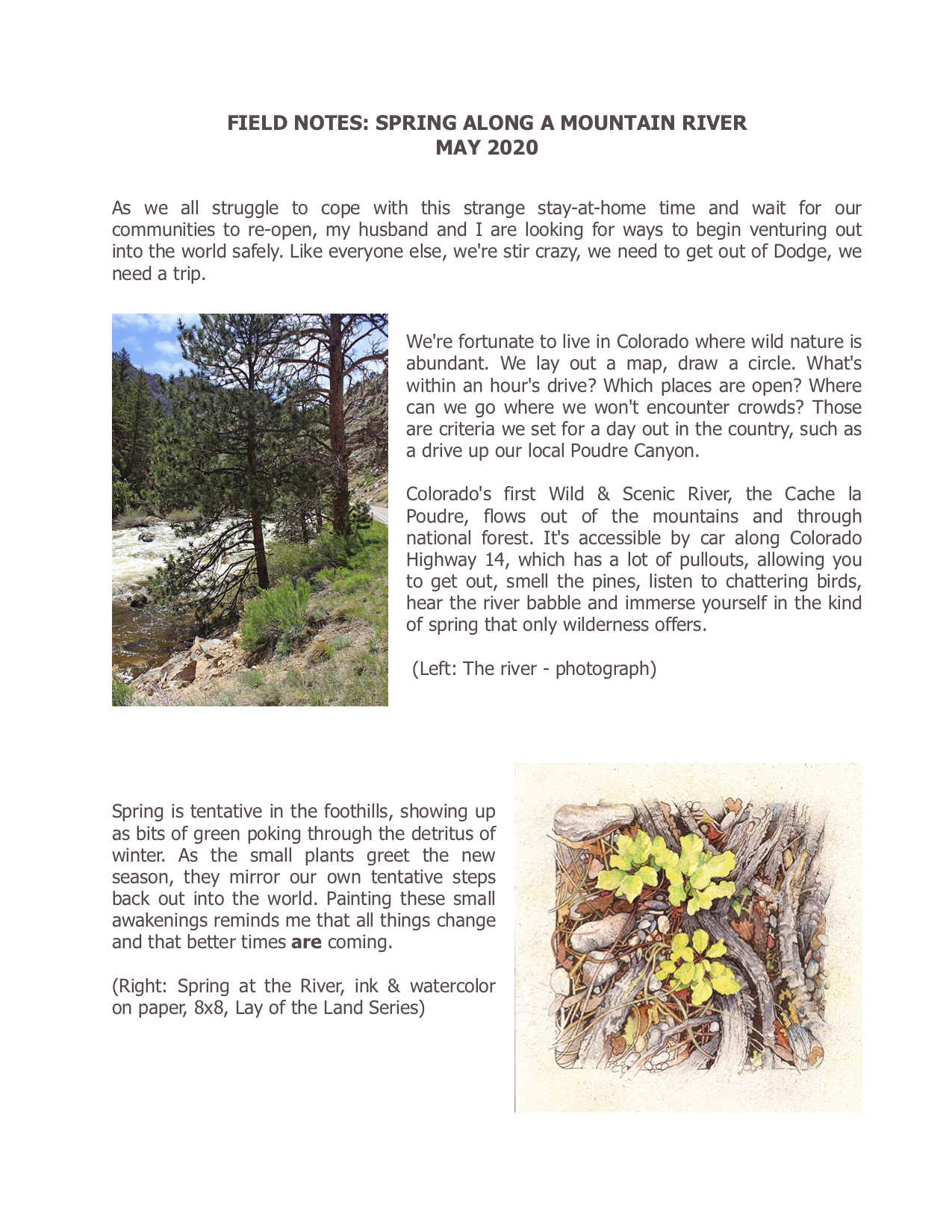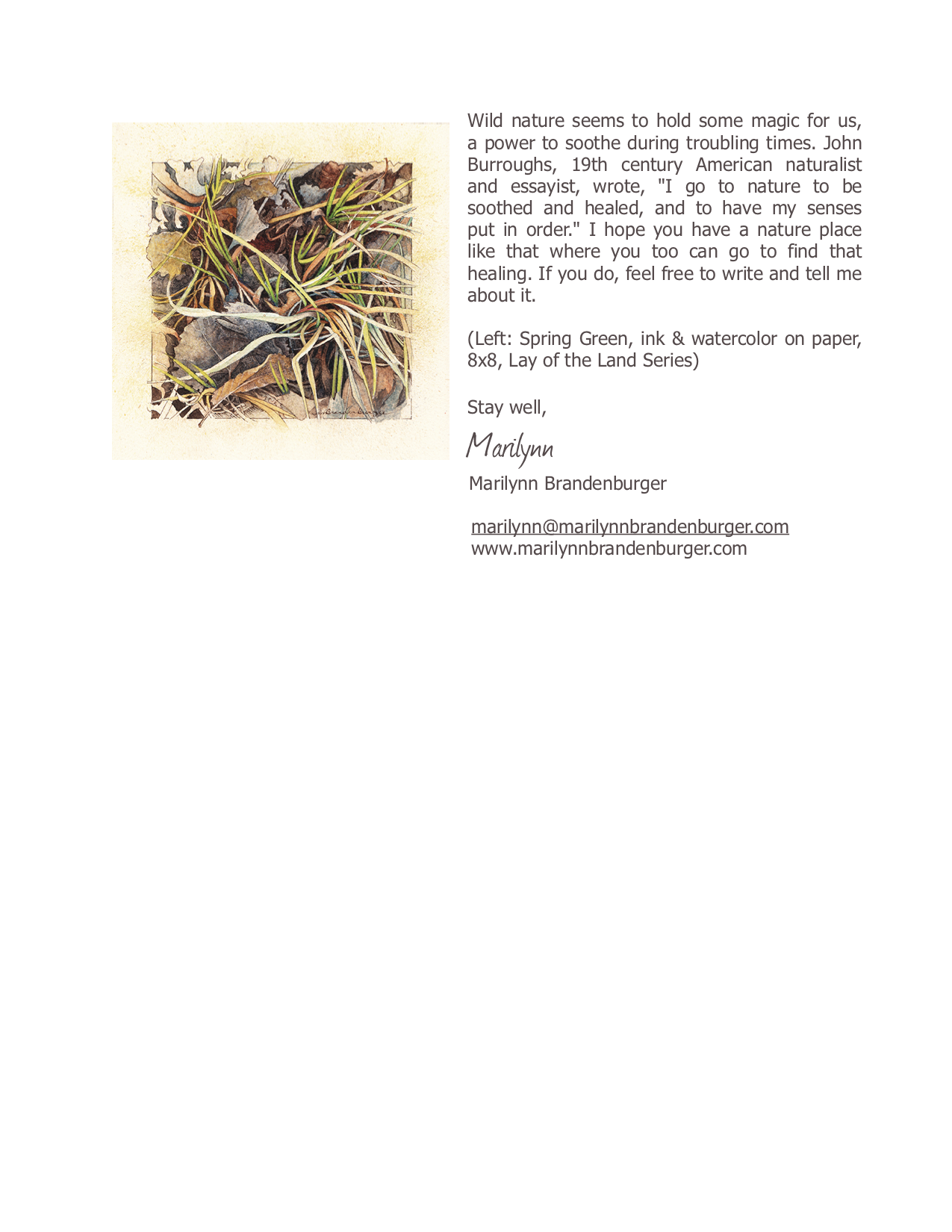Newcomb Archives’ COVID-19 and Gender Digital Scrapbook
By Camille Boechler (LA *21)
This article was originally published in Tulane Today on April 28, 2020.
As this unforgettable semester comes to a close, Newcomb Archives is asking women and trans, non-binary, gender-nonconforming and LGBQ individuals, “How are you documenting life during quarantine?”
Newcomb Archives, part of Newcomb Institute, is dedicated to collecting, preserving, and making accessible records that document the history of women and gender in the Gulf South. In the tradition of eclectic memory-keeping work, the Archives invites contributions of original artwork, ephemera, photographs, zines, personal essays, poems or other types of submissions created during quarantine.
“The idea isn’t that folks have abundant amounts of time right now to be creative or crafty,” says Chloe Raub (NC ’07), Head of Archives and Special Collections, “but that we all document our day-to-day lives in different ways, and these forms of documentation are pieces of a bigger picture.”
While the virus affects all people, marginalized individuals and communities are put under additional pressures during a public health crisis. In an article titled “The Coronavirus Is a Disaster for Feminism,” published in The Atlantic in March 2020, Helen Lewis notes, “A pandemic magnifies all existing inequalities. …Across the world, women’s independence will be a silent victim of the pandemic.”
Raub describes the project as inspired by Newcomb’s history of collecting scrapbooks, zines, journals and other alternative forms of documentation intended to preserve a record of women’s lives against the backdrop of what’s happening in the world at large.
Submissions will be preserved in the Newcomb Archives’ Digital Repository, as well as shared via social media with the hashtag #covidgenderscrapbook. Anonymous submissions also are welcome. Follow Newcomb Institute (on Instagram, Twitter and Facebook) to view submissions and learn more about the COVID-19 and Gender Scrapbook.
Power to the people!
by Lisa Rice (NC ’83)
June 28, 2020
Created especially for Ten, the DC Modern Quilt Guild
10th Anniversary Quilt Show.
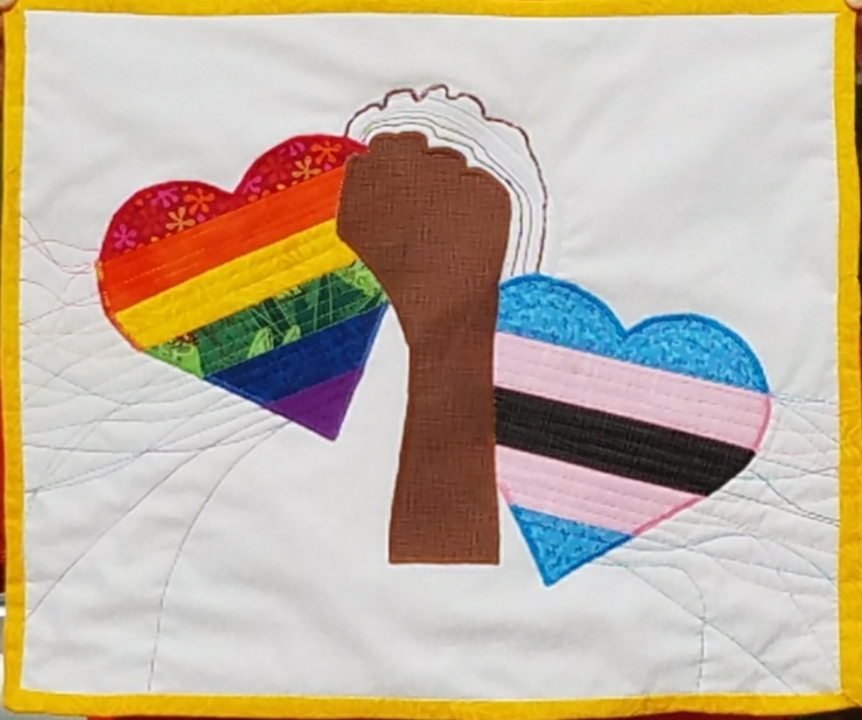
“For me, the ultimate symbol of Black pride and power is the raised fist. Introduced in America by the Black Panther Party, the Black Power Fist took center stage internationally in 1968. During their medal ceremony in the Olympic Stadium in Mexico City on October 16, 1968, two Black athletes, Tommie Smith and John Carlos, each raised a black-gloved fist during the playing of the US national anthem. It is depicted here in brown to represent me. The two hearts represent gay pride and trans pride (Black variant introduced by trans activist and writer Raquel Willis). June is recognized as Pride month. The 51st anniversary of the Stonewall Riots (Greenwich Village, New York) is today. The riots are colloquially known as the start of the modern gay pride movement. So many of us are in severe pain today, tormented after too many soul-crushing recent events. The spring of 2020 brought yet another murder by police of a Black man. And another. And another. I cannot keep up. With the weight of a global pandemic bearing down on us, killing us, these murders have brought continuous days of protest across the world and, of course, here at my home in Washington, DC. This confluence of events has also brought a lot of focus to me, as I’m often the only Black woman in the room when our Guild gathers. This quilt recognizes the joy we’re experiencing here, today, in what feels like an unprecedented time of grief, angst, misery and yes, even death.“
Mandala of Sheltering in Place
by Susanne Foster Fincher (NC ’62)
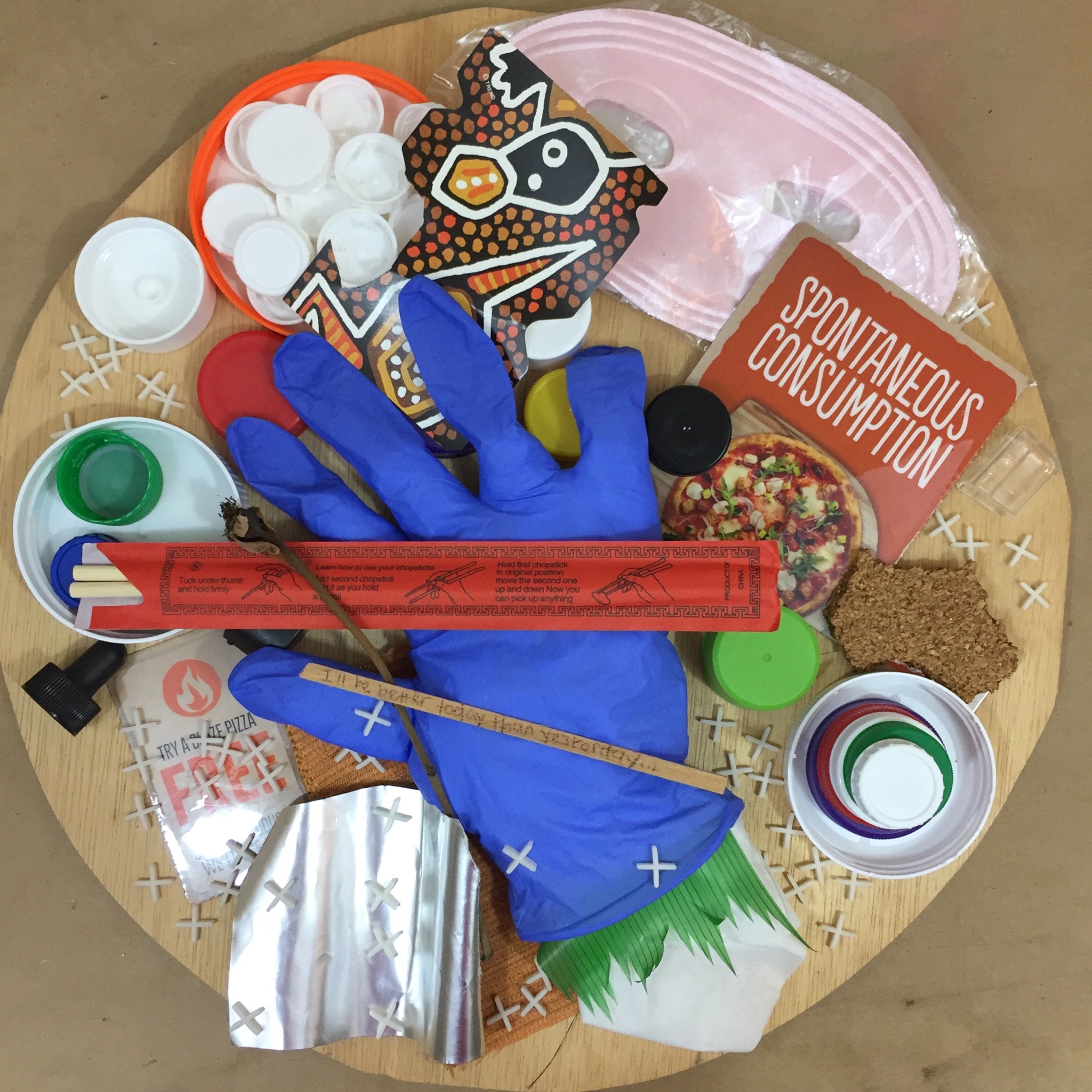
“Sheltering at home ignited a flurry of care giving, amping up the prescribed gender roles of nursing, feeding, comforting. I accepted this without complaint. It gave me something to do, and lowered my anxiety. I had time to write and make art, too. Mandala of Sheltering in Place was created with materials I used in my roles as caterer and feeder. The materials are not glued to the background, expressing the vulnerability I was feeling as well as my awareness of the unending change that shapes the human experience.”
Angles Have Gone
by Betty Boechler
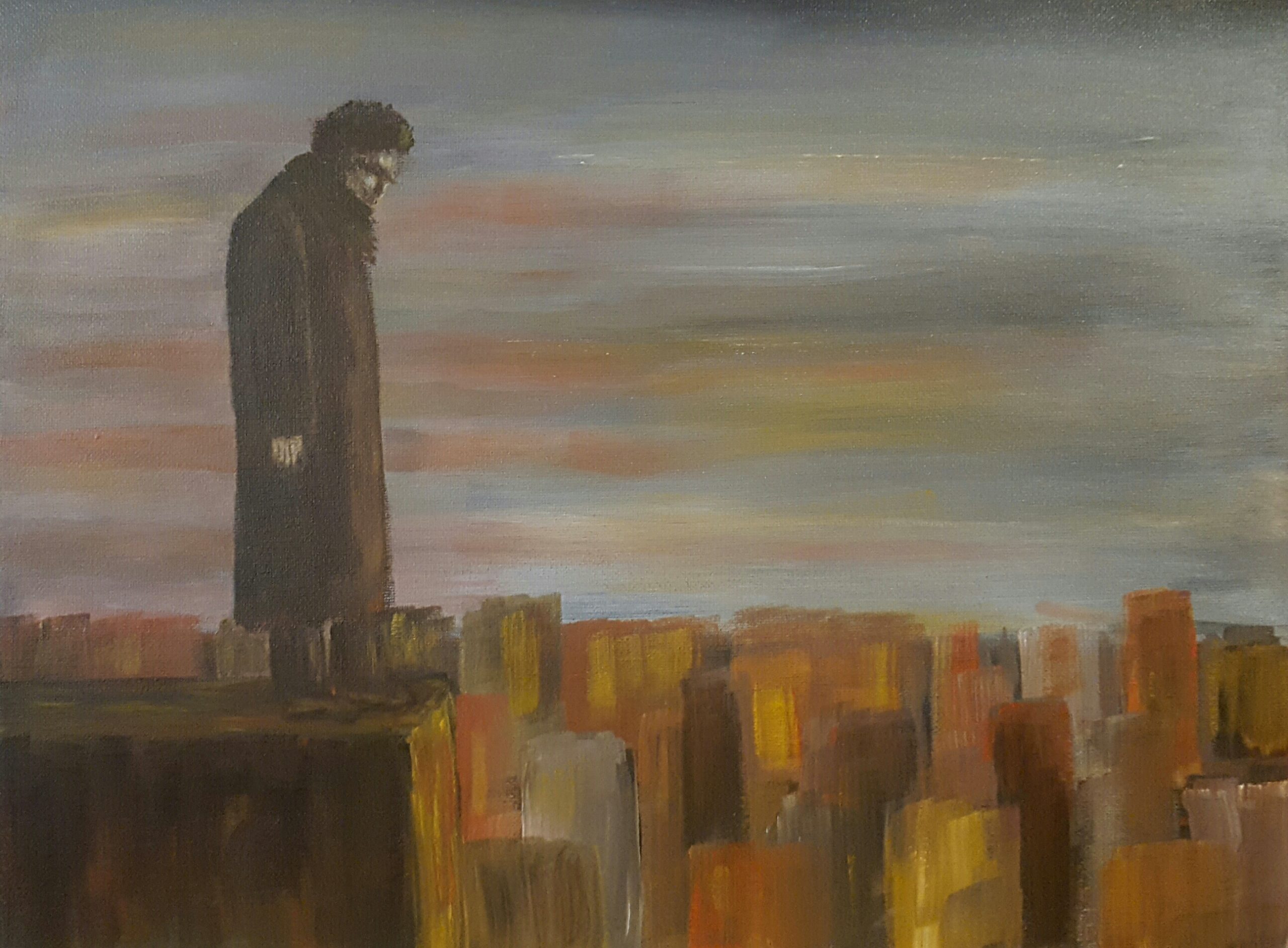
Angels Have Gone by Betty Boechler (@betty_boechler on Instagram)
Pickle
by CC Monett
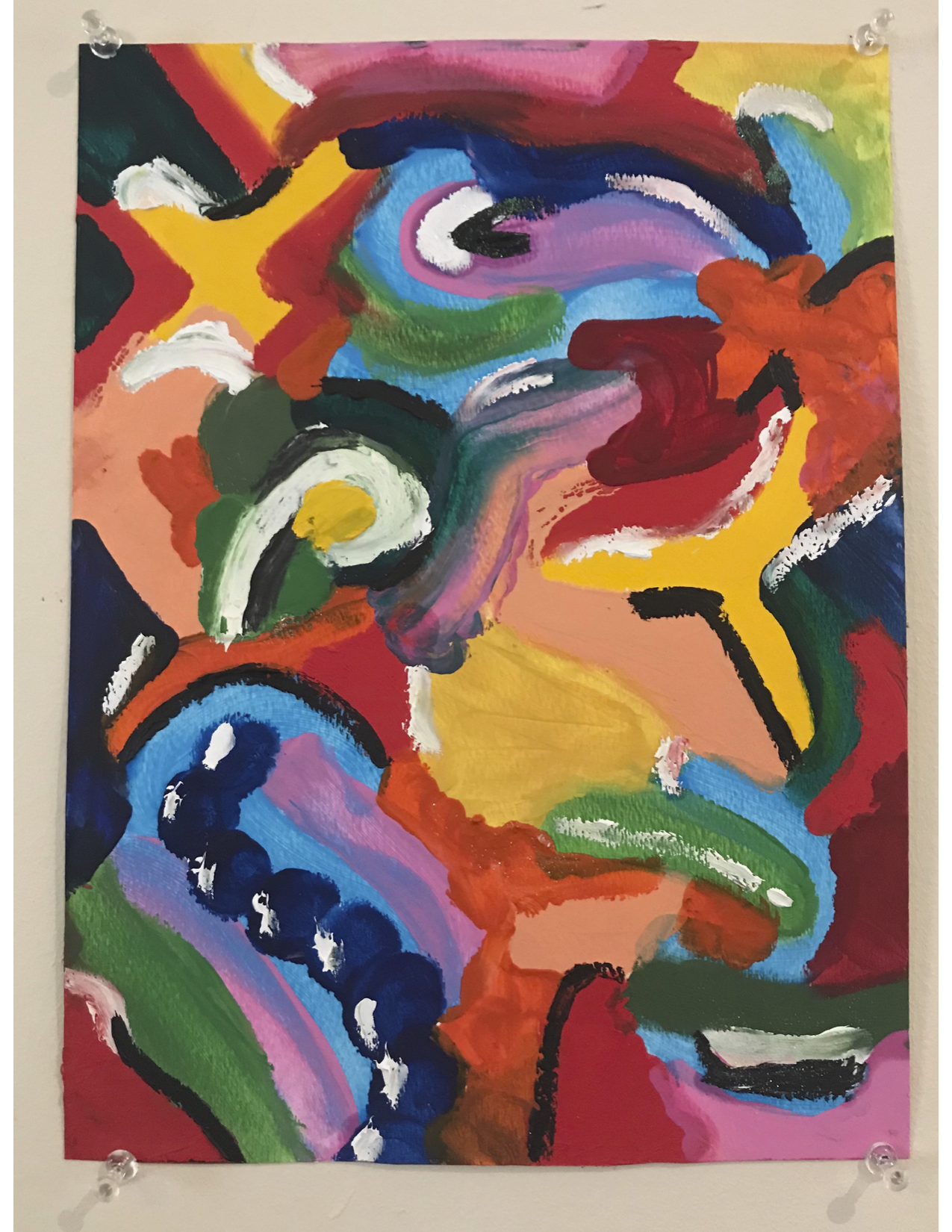
CC is a Tulane junior studying Anthropology and Environmental Studies. When asked how gender has impacted their experience during the pandemic, CC responded, “I think that non-marginalized groups have now tasted the unequal social atmosphere that marginalized groups have always dealt with before the crisis. Pickle is a finger-painted abstraction made with oil paint and glitter, the only crafts I had around the house.”
“Field Notes: Spring Along the Mountain River, May 2020”
by Marilynn Heyda Brandenburger (NC ’69)
Marilynn Heyda Brandenburger graduated from Newcomb College in 1969 with a degree in Anthropology.
“I am writing and illustrating a journal about the local trips into nature my husband and I are taking to relieve the stress of confinement during the COVID-19 pandemic. The journal is a monthly publication and I will have additional entries to contribute as the months go by. As a woman, wife, mother and grandmother, I find that my fear for my family has been heightened during the pandemic.”

